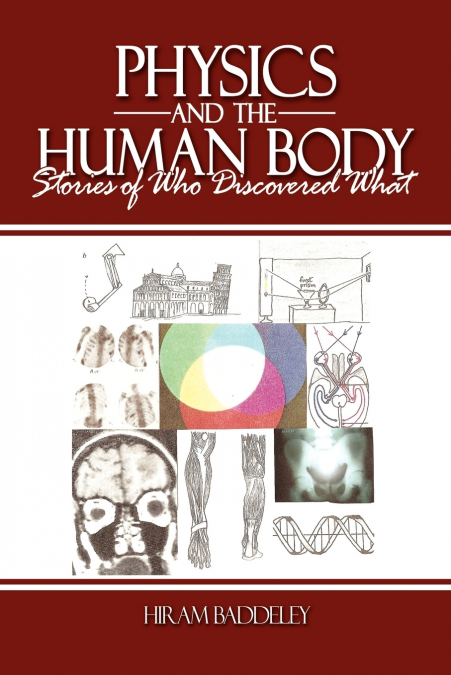
Hiram Baddeley
Physics and the Human Body is about how we found out how our bodies and the world about us work. It is the common history of the discovery of the laws of physics and the exploration of human body over more than two millennia. Theories about what nature is, what we are and how our bodies function, have concerned natural philosophers and physicians since the time of Hippocrates and Empedocles. The purpose of this book is to give a coherent history of relevant theories and discoveries to show how physics and human biology are linked. Since the Renaissance natural philosophers and physicians have collaborated and influenced one another; Galileo and Santorini, Borelli and Malpighi, Isaac Newton and John Locke, Marie Curie and Claudius Regaud. Many theories and discoveries have been made by those who were both natural philosophers and physicians: Empedocles, Ibn Sina, Gilbert, Stensen, Mayow, Stahl, Black, Poiseuille, Young, Purkinje, von Helmholtz, Berzelius and Koch. Two important themes recur in these stories of discovery. The first is the close relationship between the physical and medical sciences. The second is the inspirational nature of discovery and the power of inventive genius to formulate surprising theories of great explanatory and predictive power; theories that have revolutionized our ways of looking at the natural world and ourselves. These discoveries emphasize that the laws of physics govern the living human body as they do inanimate matter. Physics goes on inside us as well as outside. Yet for many people this unsurprising reality has been hard to accept because physics and medical biology have, in the past, been presented as entirely separate disciplines. The physics of quantum electrodynamics helped to understand the role of DNA in human genetics. The Human Genome Project completed in 2003 resulted from the discoveries of physicists as well as medical scientists and promises further insights into our nature. Quantum and radiation physics have provided new technologies such as ultrasound, nuclear medicine and computed tomography for non-surgical exploration of the living body.